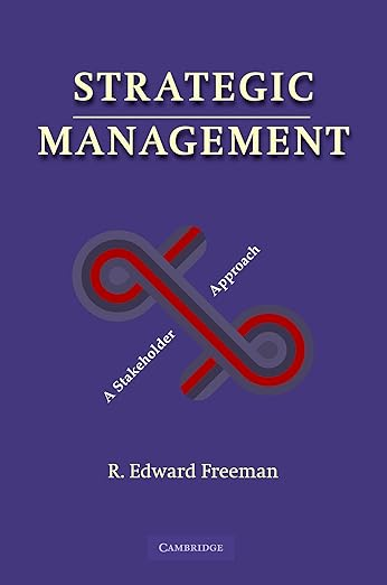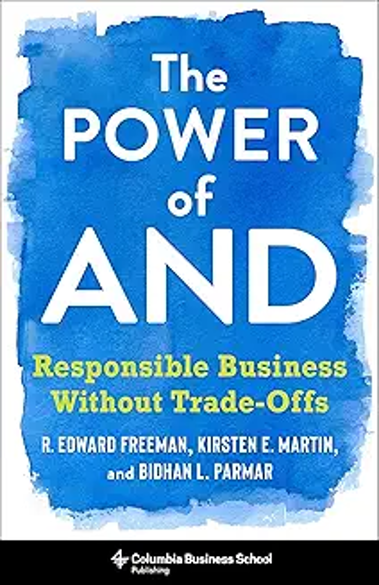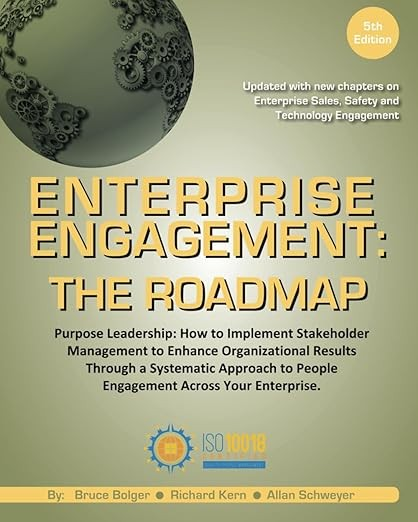EEA Show: Stakeholder Management Addresses the Pitfalls of Silos
.png)
This Enterprise Engagement Alliance YouTube show features two professors who have dedicated the better part of their careers to the principles of stakeholder capitalism—enhancing returns for investors only by creating value for customers, employees, distribution and supply chain partners, communities, and the environment. Stakeholder management addresses silos—one of the greatest sources of inefficiency and aggravation in business.
Click here to subscribe to the ESM weekly e-newsletter.
Insights from R. Edward Freeman
Insights from Gary Rhoads
The Business Roundtable’s Aug. 19, 2019 updated statement of the purpose of an organization to address the interests of all stakeholders both shed light on a decades-old concept and helped sow confusion. This YouTube show and feature article focus specifically on the issue of implementation and why, despite continuing progress, such a practical and ethical approach to capitalism has taken so long to gain traction.
Stakeholder management addresses what the professors suggest is a major weakness in organizational management: the disconnect and silos between the different functions of management—finance, marketing, sales, human resources, operations, administration, etc. Both believe that harmonizing the interests of all stakeholders toward a common purpose provides an economic opportunity for shareholders and stakeholders and even society.
Click here to watch or listen to the show.
The show features R. Edward Freeman, Professor at the Darden Business School at the University of Virginia, author of the 1984 book Strategic
 Management: A Stakeholder Approach and called by some the father of stakeholder capitalism, and Gary Rhoads, Professor Emeritus of Marketing and Entrepreneurship at the Marriott School of Business at Brigham Young University, himself an active entrepreneur in customer experience, engagement technology, and now social media. Rhoads served as an advisor to the Enterprise Engagement Alliance’s enterprise engagement implementation framework published in the first edition in 2010 of Enterprise Engagement: The Roadmap. It focuses on the brass-tacks processes to harmonize the interests of all stakeholders—based on the principles of total quality management. (The work of R. Edward Freeman was unknown to the authors of this book at the time.)
Management: A Stakeholder Approach and called by some the father of stakeholder capitalism, and Gary Rhoads, Professor Emeritus of Marketing and Entrepreneurship at the Marriott School of Business at Brigham Young University, himself an active entrepreneur in customer experience, engagement technology, and now social media. Rhoads served as an advisor to the Enterprise Engagement Alliance’s enterprise engagement implementation framework published in the first edition in 2010 of Enterprise Engagement: The Roadmap. It focuses on the brass-tacks processes to harmonize the interests of all stakeholders—based on the principles of total quality management. (The work of R. Edward Freeman was unknown to the authors of this book at the time.)In 1984, Freeman's book articulated a framework for strategic management in which leaders should consider the interests of all parties affected by their existence—not just shareholders. His approach encourages companies to actively engage with shareholders and all stakeholders, including employees, customers, suppliers, and the broader community, to foster long-term sustainability and competitive advantage. Freeman’s work has reportedly inspired such companies as Costco, Whole Foods, and the Conscious Capital movement, along with the creation of benefits corporation statutes and the B-Lab movement, and is taught as part of the curriculum at some business schools including Yale; yet, it is not yet widely understood or formally practiced in the same manner as total quality management, which has become an industry of its own. The show addresses this topic.
Besides the fact that stakeholder capitalism became conflated with virtue-signaling and greenwashing when the Business Roundtable referenced its principles in its 2019 update on the charter of businesses without a clear action plan, very few companies officially articulate their practice of stakeholder theory in the same way they apply total quality management principles in manufacturing.
As a professor who for most of his career also helped launch and sell companies in customer experience, sales engagement, and who now serves as Chairman of Skavengerz, a social gamification app, Rhoads has lived at the front lines of the challenges involved with linking customer, employee, and other stakeholder interests in a business world that remains highly siloed.
Here is a summary of their key points if you don’t have time to watch the 35-minute show.
R. Edward Freeman
Origins of Stakeholder Theory (1984)
-
Freeman came at the subject from the standpoint of philosophy, not traditional business education, so wasn’t constrained by the
 “shareholder primacy” mindset.
“shareholder primacy” mindset. - He observed that real companies naturally dealt with customers, employees, suppliers, communities, and financers, not just shareholders.
- He saw managers as real human beings trying to do the right thing, not purely self-interested actors.
- He didn’t separate business from ethics—he believed ethics is inherent to business.
- Stakeholder theory is “common sense”: successful businesses must balance relationships with all key stakeholders.
- The “old story” (business is only about profit) has a strong cultural grip but is logically flawed.
- Profits are necessary (like red blood cells for life) but are not the purpose of business. The real purpose is creating value for stakeholders.
- He warns against overemphasis on universal metrics (like ESG scores). Businesses differ too much.
- Purpose and values must be embedded in systems, processes, and culture—not just measured.
- He believes the evidence already shows stakeholder management works; the challenge is shifting the dominant mindset.
- Change will be generational, like progress on gender equality.
- Business schools must evolve or become irrelevant.
- He is ultimately optimistic: many more people, research, and companies now embrace stakeholder capitalism than when he began.
Gary Rhoads
Entrepreneurial Perspective
-
He came to stakeholder thinking through practice—building companies that had to satisfy investors, customers, and employees
 simultaneously.
simultaneously. - He focused on customer and employee engagement as critical drivers of success.
Key Finding: Employee–Customer Interdependence
- One of his companies, which he later sold, developed software to measure customer engagement and employee engagement.
- In his companies or those of clients, he found a strong correlation: high employee engagement leads to high customer engagement (and vice versa).
- He demonstrated this with a Fortune 20 company data across 50 countries.
- He identified a lag effect—low employee engagement predicts declines in customer satisfaction within three to six months.
- Companies lack “alignment metrics” that connect employee, customer, and supplier engagement into one system.
- Without connecting data, firms fail to see cause-and-effect relationships.
- Scalable processes (like total quality management for people/experiences) are needed.
- Business schools and corporations reinforce silos (finance, HR, marketing, etc.), blocking collaboration.
- Roundtables and cross-functional discussions help reveal stakeholder inter-dependencies.
- Example: fixing billing errors improved both employee morale and customer satisfaction.
- The movement is alive but slowed by short-term profit pressures.
- Culture matters deeply; companies that embed purpose and engagement in their culture see better outcomes.
- Get started with simple practices like holding regular cross-stakeholder roundtables to identify sources of disconnect or dysfunction.
Enterprise Engagement Alliance Services
 Celebrating our 15th year, the Enterprise Engagement Alliance helps organizations enhance performance through:
Celebrating our 15th year, the Enterprise Engagement Alliance helps organizations enhance performance through:1. Information and marketing opportunities on stakeholder management and total rewards:
- ESM Weekly on stakeholder management since 2009. Click here to subscribe; click here for media kit.
- RRN Weekly on total rewards since 1996. Click here to subscribe; click here for media kit.
- EEA YouTube channel on enterprise engagement, human capital, and total rewards since 2020
 Management Academy to enhance future equity value for your organization.
Management Academy to enhance future equity value for your organization.3. Books on implementation: Enterprise Engagement for CEOs and Enterprise Engagement: The Roadmap.
4. Advisory services and research: Strategic guidance, learning and certification on stakeholder management, measurement, metrics, and corporate sustainability reporting.
5. Permission-based targeted business development to identify and build relationships with the people most likely to buy.
Contact: Bruce Bolger at TheICEE.org; 914-591-7600, ext. 230.














